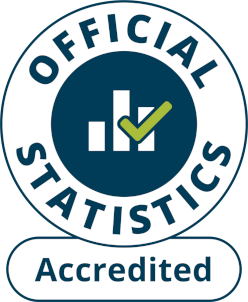Special educational needs in England: January 2013
Information on special educational needs (SEN) and related information about special schools in England.
Applies to England
Documents
Details
This statistical first release (SFR) provides analyses on the characteristics of pupils by their provision of special educational needs (SEN) together with the assessment and placement of pupils with statements of SEN. It is based on pupil-level data collected via the school census and local authority-level data collected via the SEN2 survey.
In January 2013, 229,390 pupils (2.8%) across all schools in England had statements of SEN. This percentage has remained unchanged for the past 5 years.
There were 1,316,220 pupils with SEN without statements, 16% of pupils across all schools, compared to 17% in 2012. Most of the decrease is in pupils at school action.
Additional analysis of special educational needs by primary type of need and pupil characteristics was published on 23 October 2013.
This analysis includes England information on primary type of need by age, gender, ethnicity, free school meal eligibility, national curriculum year group, first language and also information on secondary type of need.
The following main points from the analysis relate to pupils with a statement of special educational needs or at school action plus in state-funded primary, state-funded secondary and special schools:
- the most frequent type of primary need for pupils at school action plus was behaviour, emotional and social difficulties (BESD) with 24.5% of all pupils at school action plus
- additionally, speech, language and communication needs (SLCN) and moderate learning difficulty (MLD), together, account for a further 44.9% of pupils. Specific learning difficulty accounts for 13.0% of pupils. All other categories of primary need each account for less than 5% of pupils at school action plus
- the most frequent type of primary need for pupils with statements of SEN was autistic spectrum disorder representing 21.9%
- the next highest was MLD covering 15.5% of pupils with statements of SEN
- 32.5% of pupils at school action plus were eligible for free school meals (FSM) and 32.1% of pupils with statements of SEN were eligible for FSM. However, pupils with BESD were most likely to be eligible for FSM; 38.6% of these pupils at school action plus were eligible and 43.4% of BESD pupils with statements of SEN were eligible for FSM
- of all pupils at school action plus, 22.1% also had a secondary type of SEN need
- 41.1% of pupils with statements of SEN were identified with a secondary type of need
The tables from this additional analysis are contained in the ‘Additional tables 1’ Excel document on this page.
Updated local authority figures on the statements of SEN that were finalised within 26 weeks for the year 2012 to 2013 were also published on 23 October 2013. These can be found in the ‘Additional tables 2’ Excel document on this page.
Queries should be directed to:
Lisa Parkinson
01325 735 771
Updates to this page
Published 30 July 2013Last updated 1 May 2014 + show all updates
-
Additional tables 2 - updated 01/05/2014. Figures for Reading local authority have been updated to correct a misinterpretation. Totals for the South East and England have been adjusted accordingly.
-
Updated with additional tables 1 and 2 covering SEN by primary need type and statements finalised within 26 weeks.
-
First published.
